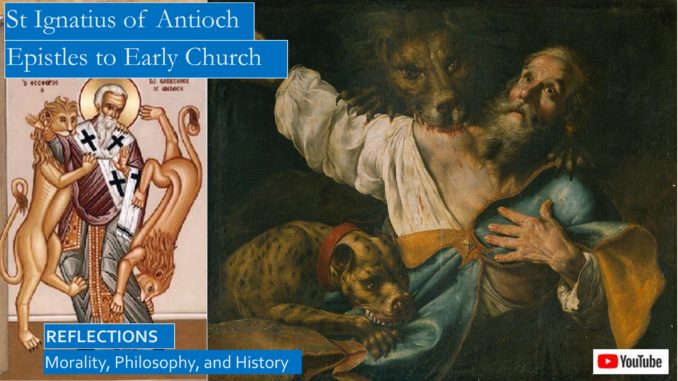
The translator tells us that St Ignatius’ Epistle to the Romans is the most popular and widely quoted of his epistles, he does not warn the Romans of heresies or chide them for disobeying their clergy or causing dissension as he does in his other epistles, but rather St Ignatius pines for his joyous martyrdom in the arena of Rome.
EPISTLE TO THE ROMANS
Repeatedly St Ignatius begs the Romans not to seek a pardon to prevent his martyrdom. He writes his rhapsody, “in the fullness of life I am yearning for death with all the passion of a lover. Earthly longings have been crucified; in me there is left no spark of desire for mundane things, but only a murmur of living water that whispers within me, ‘Come to the Father’. There is no pleasure for me in any meats that perish, or in the delights of this life; I am fain for the bread of God, even the flesh of Jesus Christ, who is the seed of David; and for my drink I crave that Blood of His which is Love imperishable.” “I am His wheat, ground fine by the lion’s teeth to be made purest bread for Christ.”
The best place to purchase the eBook version of the Ante-Nicene Fathers, Volume 1, is http://www.christianbook.com
YouTube video for this blog: https://youtu.be/CM31T6J4bXo
Our other St Ignatius blog: http://www.seekingvirtueandwisdom.com/st-ignatius-epistles-to-the-ephesians-magnesians-and-smyrnaeans/
We are fortunate that we can practice our Christian faith without fear of persecution, and we are fortunate to live in a less brutal world, but we can be martyrs in our faith by practicing self-discipline, fasting rather than feasting by eating simple and healthy fare, fish and fruits and vegetables on a DASH diet rather than preparing sumptuous feasts for ourselves, not over-indulging in drink and vain entertainment, sacrificing our selfishness to care for our neighbor, always thinking and saying the best of our neighbor, never being ugly.
St Ignatius likens his upcoming martyrdom as a eucharist, as a sacramental offering, and we should live our lives as a sacrament to the Lord, praying without ceasing, ever keeping the Word of God alert in our mind, guarding our tongues, encouraging rather than discouraging our neighbor.
We should pray that we long for Christ as St Ignatius longs for Christ. “To die in Jesus Christ is better than to be monarch of earth’s widest bounds. He who died for us is all that I seek; He who rose again for us is my whole desire.”[1]
EPISTLE TO POLYCARP
St Ignatius writes this epistle to his beloved fellow bishop Polycarp, encouraging him to greater service to the Lord. The beloved story of the Martyrdom of Polycarp is also included the Early Christian Writings.
We learn a lesson from his greeting to his friend, “My most cordial greetings to Polycarp, who is bishop over the Smyrnaean church, or rather, who has God the Father for bishop over him, together with the Lord Jesus Christ.” When we are a priest or a pastor or a teacher or a parent, we need to see our authority as a loan from God who granted us authority, and indeed God will be more the authority over us than we are the authority of those who look up to us. Honor your father and mother is a commandment to their children, but it is more of a commandment to the parents to be sure they are worthy of honor and respect in their words and deeds.
The priest, the pastor, the teacher, the parent, the employer, the judge, all these should show their love for those whom they serve. The following long passage St Ignatius addresses to Polycarp as bishop. If you are a parent or a teacher or anybody else in authority, read this passage as it would apply to you:
Support and bear lovingly with those whom you serve.
“Spend your time in constant prayer,
beg for ever larger gifts of wisdom.
Be watchful and unsleeping in spirit.
Address yourself to people personally,
as is the way of God Himself,
and carry the infirmities of them all on your own shoulders,
as a good champion of Christ ought to do.
The heavier the labor, the richer the reward.”
Never tire of doing good, never tire of encouraging, never tire of service, always love your neighbor and those close to you and in your care. “Be strict with yourself, like a good athlete of God. The prize is immorality and eternal life.”
St Ignatius offers pastoral advice to Polycarp. “When men and women marry, it is best that they ask for the bishop’s consent, so their wedding may be a tribute to the Lord and not to their carnal desire. The honor of God should be the aim in everything.”[2] We are reminded of Tobias in the Scriptures who kneeled at his wedding bed, asking God to bless his marriage:
“I now am taking this kinswoman of mine,
not because of lust, but with sincerity.
Grant that she and I may find mercy
and that we may grow old together.”[3]
He also has pastoral advice regarding slaves. The translator notes that many churches could use church funds to emancipate Christian slaves. We can profitably read the passages in the Church Fathers and in Scriptures regarding slaves when we remember they were the employees of the ancient worlds, employees who rarely were able to exchange a bad master for a kinder master.
“It should be the aim of slaves to be better slaves,”
and for employees to be better employees,
“for the glory of God, so they may earn a richer freedom at His hands.
They are not to set their hearts on gaining their liberty at the church’s expense,
for then they only become slaves to their own longings.”
Likewise employees are not to set their hearts on a raise they know they earned,
or a promotion they know they deserve,
lest they kill the desire to be dutiful and conscientious employees.
This reminds me of a former colleague who was angry at the boss who delayed giving him his review and his five percent raise for months and months and months. His anger boiled over such that he threatened to shoot his boss, and his seething resentment caused an incident that cost his job. He was out of work for over a year. Resentment over a delayed five percent pay raise for a few months caused him to suffer a hundred percent pay cut for much, much longer.
Near the end of his epistle St Ignatius, like St Paul, leads us Onward as Christian Soldiers:
“For a shield take your baptism,
for a helmet your faith,
for a spear your love,
for body armor your patient endurance,
and lay up a store of good works
as a soldier deposits his savings,
so that one day you may draw the credits due to you.
Be patient and gentle with one another, As God is with you.”[4]
NOTE: This is probably the only course of Bart Ehrman’s that I will reference in my blog. Bart Ehrman is one of the foremost textual critics of the New Testament, which means his academic specialty is analyzing the original Greek manuscripts to determine as accurately as possible what the original text said. Unfortunately, he has lost his faith. He is also the leading Historical Jesus scholar, which is why I also include a link to a book that is an apology defending traditional Christianity against the Historical Jesus movement. He has also published a fresh translation of the Apostolic Fathers.
Please also review my blogs on the Historical Jesus: http://www.seekingvirtueandwisdom.com/category/historical-jesus/ .
[1] Ignatius of Antioch, “Epistle to the Romans,” in Early Christian Writings – The Apostolic Fathers, translated by Maxwell Staniforth (New York: Dorset Press, 1968), pp. 102-108.
[2] Ignatius of Antioch, “Epistle to Polycarp,” pp. 127-129.
[3] https://www.biblegateway.com/passage/?search=tobit+8%3A7&version=NRSVCE
[4] Ignatius of Antioch, “Epistle to Polycarp,” pp. 128-129.

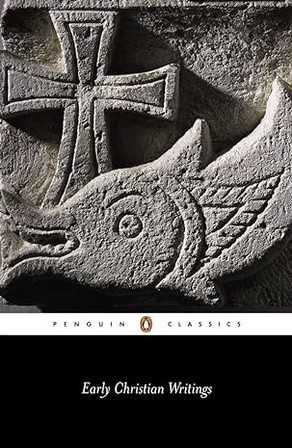
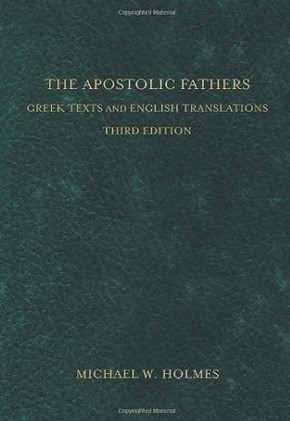
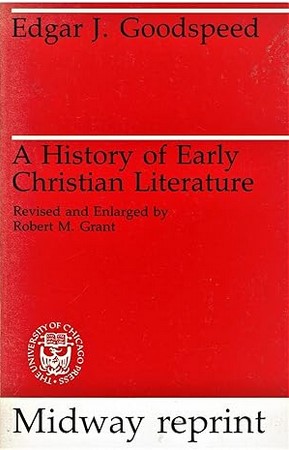
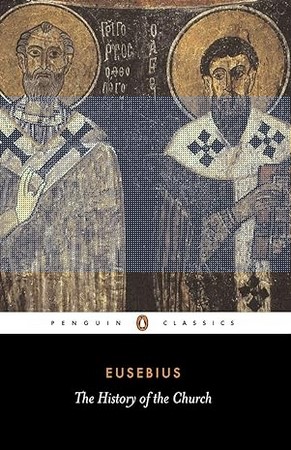
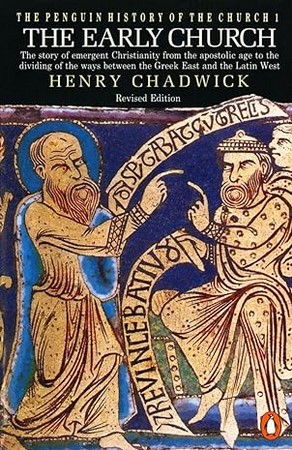
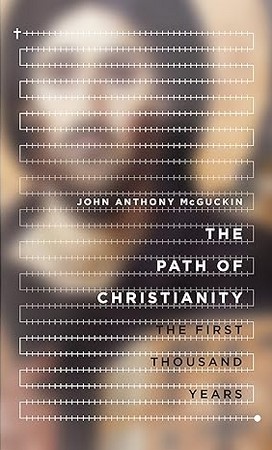
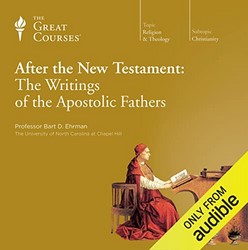
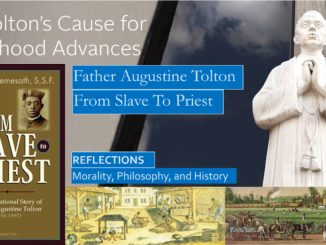
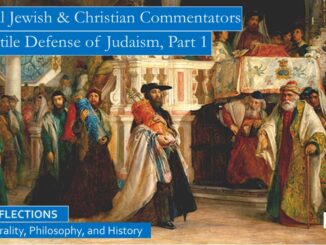
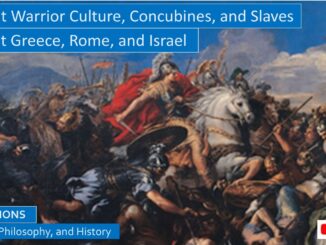
3 Trackbacks / Pingbacks